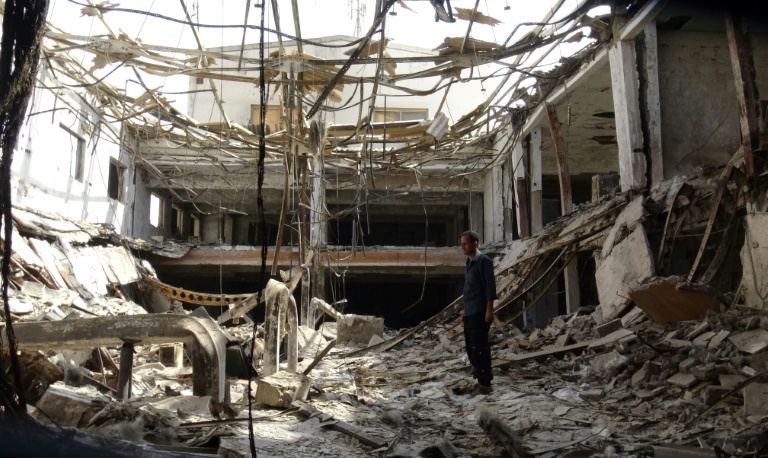
A hard-won truce in the battleground Yemeni city of Hodeida will collapse if rebel violations persist and the United Nations does not intervene, the Saudi-led coalition said on Wednesday.
UN observers are due to arrive in the Red Sea port city during the day to chair monitoring teams made up of Yemeni government and rebel representatives tasked with overseeing the implementation of the ceasefire that took effect on Tuesday.
“A total of 21 violations since ceasefire commencement have come to our notice,” a coalition source told AFP on condition of anonymity.
“If the UN continues to drag the chain and take too long to get into the (military) theater, they will lose the opportunity altogether… and the agreement will turn a dead duck,” the source, who spoke on condition of anonymity, said in English.
“We will continue to give them the benefit of the doubt and show restraint but early indicators are not promising.”
A UN official had told AFP on Tuesday that the observers would deploy “within 24 hours” in the city whose strategic docks are the point of entry for 80 percent of Yemeni imports and virtually all UN-supervised humanitarian aid.
The observers of the UN-chaired Redeployment Coordination Committee are due to oversee the withdrawal of the warring parties from the city, including a rebel pullout from the docks.
The committee chair is expected to report to the UN Security Council on a weekly basis as part of a major diplomatic push to end the four year-old conflict that is seen as the best chance yet for peace.
Hodeida residents reached by telephone said there was complete calm in the city on Wednesday morning following intermittent gunfire during the night.
The war between the the Huthi Shiite rebels and troops loyal to President Abedrabbo Mansour Hadi escalated in 2015, when he fled into Saudi exile and the Saudi-led military coalition intervened.
Since then, the war has killed some 10,000 people, according to the World Health Organization, although human rights groups say the real death toll could be five times as high.
The conflict has also pushed 14 million people to the brink of famine in what the United Nations describes as the world’s worst humanitarian crisis.




